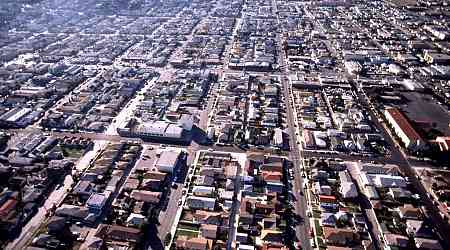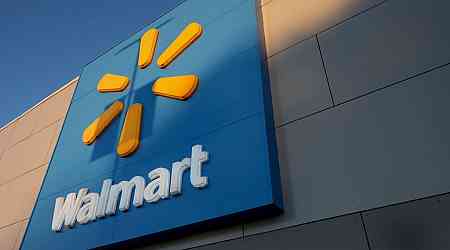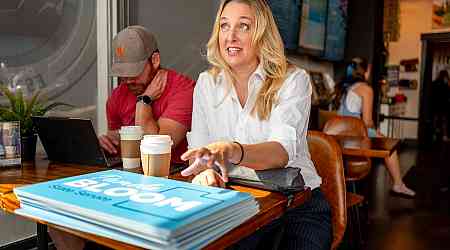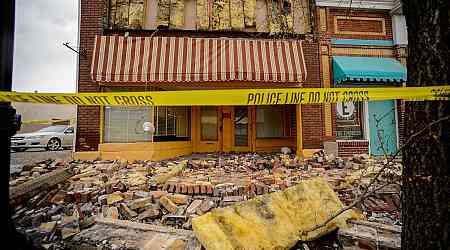
If you’ve been putting off a colonoscopy, you’re not alone. The fasting is uncomfortable, the prep is disagreeable, and the procedure itself requires you to be put to sleep. But colonoscopies are more than worthwhile, since they’re the gold standard for detecting colon cancer.
So who should schedule a colonoscopy, and what can you expect from the procedure? Dr. Meir Salama, chief of gastroenterology at St. Joseph’s Medical Center in Yonkers, N.Y., explains what to know to get the most out of this potentially life-saving tool.
[time-brightcove not-tgx=”true”]Who should be tested?
The answer to that question is simple: everyone. This year, more than 106,000 Americans will develop colon cancer, according to the American Cancer Society. Since the mid-1990s, rates have been increasing by 1% to 2% per year in people younger than 55. Nobody is immune to colon cancer and no one, therefore, should pass up this critical precaution.
Just when you should start is another matter. Salama says screening for most men and women should begin at age 45 and be repeated every 10 years up to and including age 75.
Read More: The 1 Heart-Health Habit You Should Start When You’re Young
But those general rules don’t apply to everyone. Only lower-risk people—those without a first-degree family member who has had colon cancer, or people who haven’t before been diagnosed with intestinal polyps—should follow that schedule. First-degree family members are mothers, fathers, brothers, and sisters. If one of those relatives has or has had the disease, currently or in the past, you should start screening at age 40, or 10 years before the age at which your youngest family member with the disease was diagnosed—whichever is earlier, according to Salama and guidelines from the Dana-Farber Cancer Institute.
“So if your relative was diagnosed at age 50,” says Salama, “we would start looking at you at age 40.”
How do you prepare for a colonoscopy?
This is the part of the procedure that most people find at least a little unpleasant—and not without reason. The day before your colonoscopy, you can have a normal breakfast, but after that you have to limit your diet to clear liquids like broth and clear fruit juices, Salama says. Starting at 3:00 or 4:00 in the afternoon, you will begin drinking a laxative fluid your doctor will prescribe, and continue until about 7:00 pm. This will cause you to empty your bowels quite completely, within as little as an hour. But food that has not yet made it down to your large intestines will still be in your system. For this reason, it is best to repeat the laxative procedure the next morning, four or five hours before the test, Salama says. The laxative is typically made of polyethylene-glycol, a large molecule that is not absorbed by the bowel, along with electrolytes to prevent dehydration. Some cramping is possible as the bowels begin to empty.
“Recent studies suggest that a better bowel cleansing will be achieved with a split-dose preparation,” says Salama. “This will ensure a much more thorough cleansing than if you only did it the day before.”

What should you expect during the procedure?
The actual colonoscopy is the easiest part of the process, since you will be unconscious for it. An anesthesiologist or nurse anesthetist will typically administer the anesthetic propofol, which is a fast-acting drug that will knock you out immediately, but keep you out for only 15 minutes or so, says Salama.
For most colonoscopies, this is enough time. In a healthy person, a probe called a colonoscope will be inserted five to six feet into the large intestine. If you have a history of inflammatory bowel disease (IBD), like Crohn’s disease, the doctor may want to probe further, into the small intestine. This may also be the case if you have a family history of colon cancer or a personal history of polyps, Salama explains.
Read More: 7 Metrics Everyone Should Know About Their Own Health
If no polyps are found, your doctor will be able to give you the all clear once you wake up. If polyps are found, the colonoscopy may take up to 45 minutes. The polyps will be removed during the procedure and sent to a lab for a biopsy; the results may be back in as little as a day. If you have a broad, flat polyp which is harder to remove, your doctor may send you to a sub-specialist with more advanced surgical skills and tools.
“Polyps are pre-malignant by virtue of their nature,” says Salama, “unless they were what’s called hyperplastic polyps, which are benign growths.”
Removal of even a pre-malignant polyp will usually be a sufficient treatment. Only in more advanced cases—when an actual malignancy is detected via colonoscopy and biopsy—will more-extensive surgery and chemotherapy be in order. More than 99% of colon-cancer cases begin with a polyp, Salama says.
What follow-ups are required if you don’t have cancer but do have polyps?
Even if your polyp can be treated simply by removing it, your doctor may still want to see you more frequently than just once every 10 years. “It all depends on the histologic results of the pathology,” says Salama. “What is found? What kind of polyp is it? How large is it? That will determine when you come back. It could be three to six months, it could be a year. It could be three years, five years. It depends on what they find.”
Are there alternatives to colonoscopies?
Despite the development of other similar options, nothing is quite as comprehensive as the colonoscopy. Cologuard, a mail-in home stool test that checks for abnormal DNA in feces, is best for people who simply will not submit to a colonoscopy, Salama says, or who shouldn’t have it due to underlying conditions that make sedation dangerous.
The problem is, if abnormal DNA is detected, a colonoscopy is required to confirm the finding—and with a false positive rate of about 14% for home tests, people may wind up having the more invasive procedure anyway.
Read More: Do You Really Store Stress in Your Body?
Home tests, Salama says, “provide you a second-choice screening option, but if it comes back positive, you have to have a colonoscopy.”
In July, the U.S. Food and Drug Administration approved a blood test that similarly detects colon-cancer-related DNA, but the test is most effective at finding late-stage cancers. What’s more, its overall success rate is only 83% in uncovering cancer—which means a lot of cancers could still slip through—and 13% at spotting early-stage polyps. And, as with Cologuard, a positive test requires a colonoscopy to determine the location of the polyps and how advanced they are.
Can everyone stop screening at age 75?
The 75-year-old cutoff date applies only to low-risk people with no first degree relatives with cancer and no history of polyps. People in higher-risk groups should continue being screened as their doctor recommends. Even people who are healthy may want to continue colonoscopies past 75, especially if they have a family history of living into their eighties or nineties or beyond.
“The longer you live, the more likely you’re going to develop a cancer,” Salama says. “If I have a very healthy patient who has very few comorbid problems—no heart disease, no lung disease—and tells me that his parents lived to 90 or 100, if they want a colonoscopy, I go ahead and do it.”





























